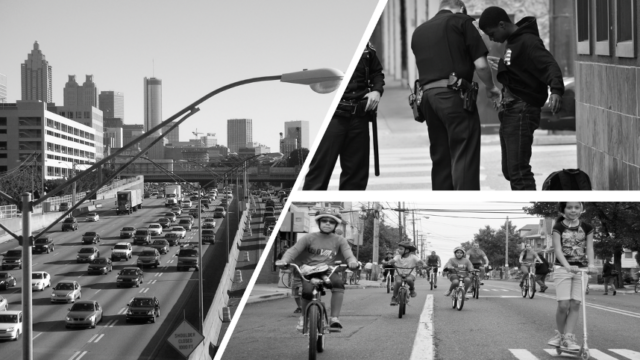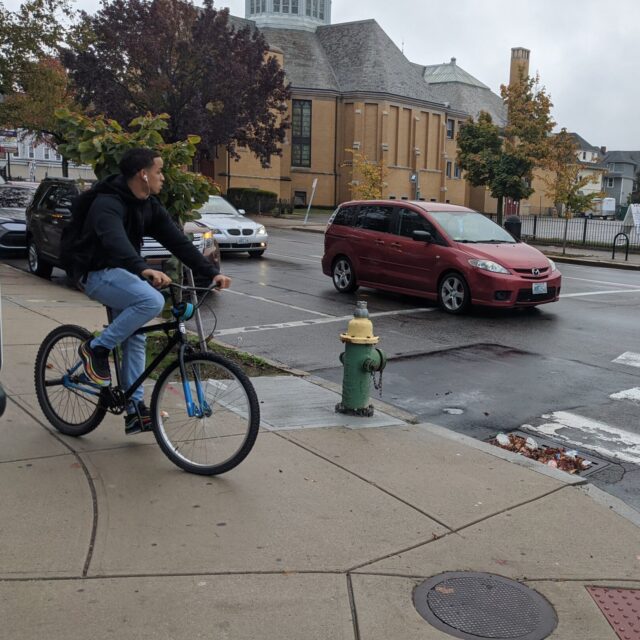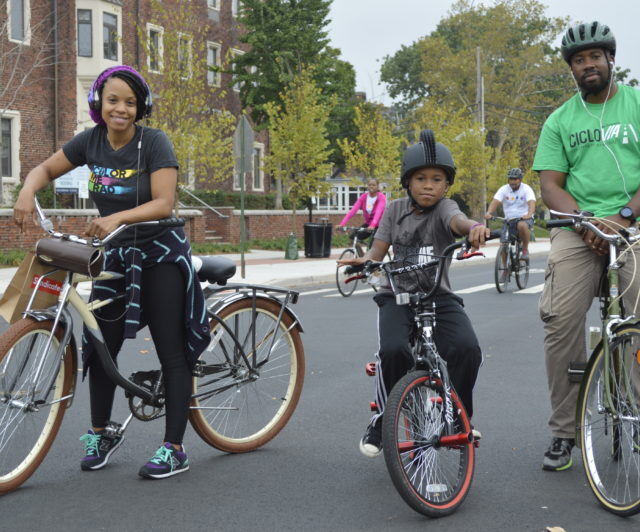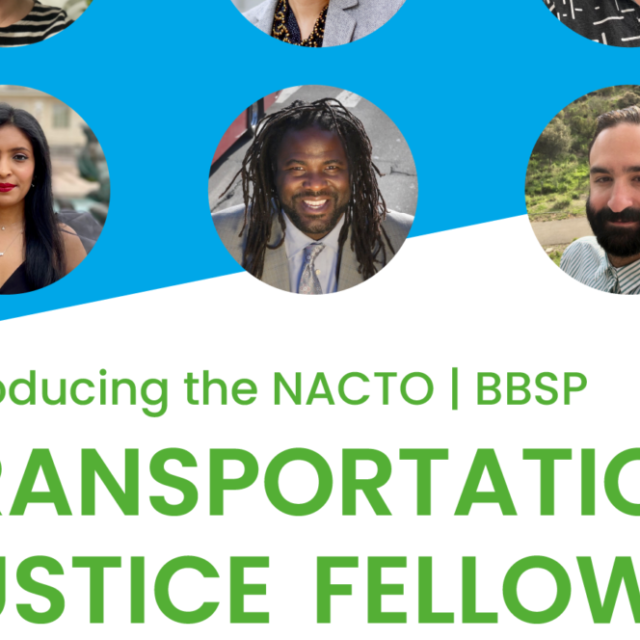Equitable Cities’ Social Justice Fellowship
by Kiran Herbert, Communications Manager
September 24, 2021
The Nelse and Ella Gaston Social Justice Fellowship is designed to provide the opportunity for someone to work on transportation, planning and public health issues on a global scale.

In 1959, on a February day in Shuqualak, Mississippi, Nelse and Ella Gaston, were driving four of their children home after visiting family when they were pulled over by a sheriff’s deputies, beaten and arrested. Their story—which, amazingly for the Jim Crow South, ends well—is chronicled in the book “Justice for Ella,” the inaugural pick for Charles T. Brown’s Arrested Mobility Book Club. For Brown, the choice was incredibly personal. The Gastons are his relatives and their story has informed all aspects of his work as a researcher at the intersection of health, equity and transportation.
Earlier this year, Brown founded Equitable Cities LLC, a U.S.-based urban planning, public policy and research firm. In order to grow its team, Equitable Cities has announced the Nelse and Ella Gaston Social Justice Fellowship, a year-long opportunity to work closely with Brown on issues of transportation, planning, and public health on a global scale. In this first-of-its-kind position, the selected fellow will produce social justice policy research and analysis, evaluate the impact and effectiveness of complex, multi-sectoral programs, and engage in communities of practice. They’ll also have the opportunity to connect and develop rapport with key leaders and stakeholders and host interdisciplinary learning opportunities.
“At Equitable Cities, we center people in everything we do,” says Brown. “In doing so, we recognize the importance of centering racial equity and inclusion in our work. This fellowship reflects our commitment and provides an opportunity for a professional to live out their dream of doing work that matters—unapologetically.”
Due to the full-time nature of the position and Equitable Cities’ guiding principles, the fellowship will be compensated at up to $65,000 per year, commensurate with experience. Completely remote, the fellowship may be renewed up to two additional years and/or for permanent employment. Dedicated, curious individuals with outstanding research, organizational and interpersonal skills are encouraged to apply.
Other pre-requisite qualifications for this role include:
- U.S. citizenship or a permit to work in the U.S. for the duration of the program (currently October 15, 2021 through October 14, 2022)
- Master’s Degree in urban planning, public policy, public health or a closely related degree
- A minimum of two (2) years of progressive working experience in urban planning, public policy, public health or a related field
- Experience working with diverse stakeholders, including government officials and administrations, for-profit and non-profit organizations, and advocates in transportation, mobility, and health
- Excellent project management skills with the ability to independently coordinate and lead multiple projects simultaneously with a focus on quality and project follow-through
- Experience working in dynamic, impact orientated environments and a proven track record in meeting deadlines
- Superior evaluation and analytical skills; experience in qualitative and quantitative data collection and analysis is preferred
- Outstanding oral and written communication skills; experience in social media and marketing is preferred
- Demonstrated commitment to social justice either through public policy, professional experience, or community-related activism aimed at improving the living conditions for communities of color
- Creative problem-solving skills; including an ability to grasp key issues and make recommendations for improvements
- Adaptability and ability to learn and develop skills on the job
- Flexibility to travel frequently to client cities.
Fellows must complete an online application by 11:59 pm EST, October 1, 2021, that includes three letters of recommendation submitted electronically, a cover letter, a resume with a three-page limit and answers to the following supplemental questions:
- Choose a social justice issue you find most relevant to communities of color. Discuss the issue, the key members involved with the issue, and the potential or current effects of the legislation, collaboration and research on communities of color. Be sure to cite your sources. [500 words maximum]
- What goal(s) do you hope to achieve through the fellowship? [500 words maximum]
- What particular aspect(s) of your work or experience do you think will be particularly useful as a fellow working in a multi-sectoral space? [500 words maximum]
Applications will be reviewed by a selection committee composed of Equitable Cities staff and external partners and top candidates will be invited to interview. The selection process will be highly competitive and incomplete or late application packets will not be reviewed. If this opportunity sounds like a good fit for you or someone you know, we encourage you to apply and commend you for engaging in this hard, important work.
The Better Bike Share Partnership is funded by The JPB Foundation as a collaboration between the City of Philadelphia, the National Association of City Transportation Officials (NACTO) and the PeopleForBikes Foundation to build equitable and replicable bike share systems. Follow us on Facebook, Twitter and Instagram or sign up for our weekly newsletter. Got a question or a story idea? Email kiran@peopleforbikes.org.



